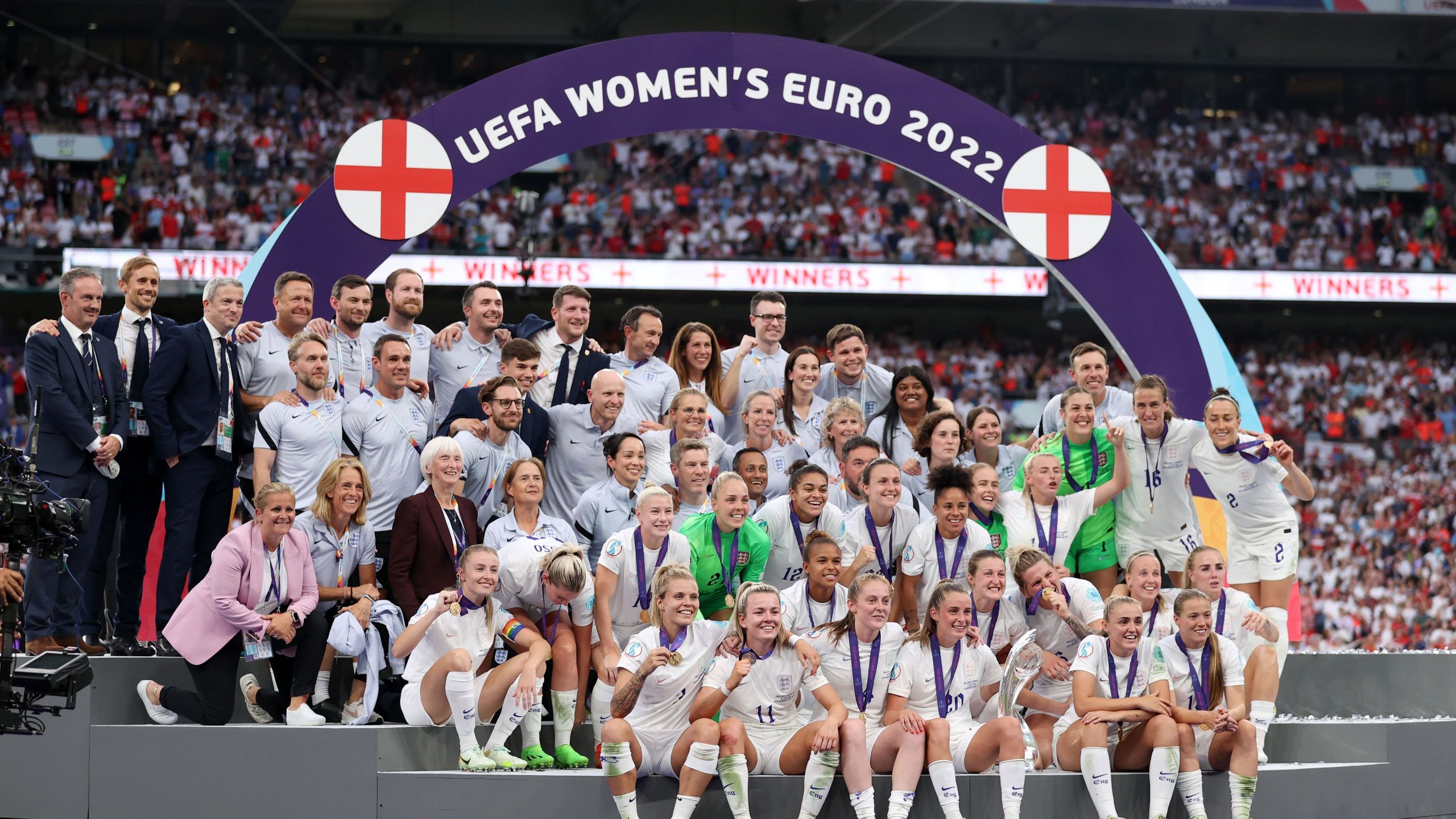Women’s Euro Winners: Every Champion Since 1984
Women’s Euro winners have charted the rapid rise of the women’s game, turning a modest four-team event in 1984 into one of world football’s showpiece tournaments. From Sweden’s historic penalty shoot-out in the inaugural final to England’s extra-time roar at Wembley in 2022, each edition has added a new layer to the competition’s rich tapestry.
Women’s Euro Winners Through the Decades
The tournament began with home-and-away ties before settling into the familiar festival format we enjoy today. Early Women’s Euro winners such as Sweden (1984) and Norway (1987, 1993) carved out Northern Europe’s reputation for technical, hard-running football. The 1990s, however, ushered in an era that would rewrite the record books.
Germany’s Eight-Title Dominance
Germany became synonymous with success. After tasting victory in 1989, the Frauen Nationalmannschaft rattled off seven further crowns—1991, 1995, 1997, 2001, 2005, 2009 and 2013—cementing their status as the most decorated Women’s Euro winners. Their relentless pressing, tactical clarity and conveyor belt of talent—from Bettina Wiegmann to Birgit Prinz and Nadine Angerer—set a benchmark other nations chased for nearly three decades.
The Six-in-a-Row Streak
Between 1995 and 2013 Germany captured six consecutive titles. Key moments included a golden-goal triumph over Sweden in 2001 and the 6-2 demolition of England in the 2009 final, still the highest-scoring showpiece.
Complete List of Champions & Runners-Up
1984: Sweden 1–1 England (4-3 pens)
1987: Norway 2–1 Sweden
1989: West Germany 4–1 Norway
1991: Germany 3–1 Norway
1993: Norway 1–0 Italy
1995: Germany 3–2 Sweden
1997: Germany 2–0 Italy
2001: Germany 1–0 Sweden (golden goal)
2005: Germany 3–1 Norway
2009: Germany 6–2 England
2013: Germany 1–0 Norway
2017: Netherlands 4–2 Denmark
2022: England 2–1 Germany (a.e.t.)
Only six nations—Sweden, Norway, Germany, Netherlands, England and Denmark—have reached a final, while Italy and Sweden remain the most frequent runners-up.
Shift in Power: Netherlands and England Emerge
In 2017 the Oranje Leeuwinnen, buoyed by home crowds and Vivianne Miedema’s clinical finishing, broke Germany’s stranglehold. England’s Lionesses then capitalised on record attendances and investment to lift their maiden crown in 2022, defeating Germany in front of 87,192 fans—the highest attendance in European Championship history, men’s or women’s.
Key Factors Behind New Champions
1. Professional domestic leagues nurturing elite talent.
2. Increased UEFA prize money and visibility.
3. Greater tactical diversity, with possession-based play complementing traditional direct styles.
Women’s Euro Winners Table by Titles
Germany – 8
Norway – 2
Sweden – 1
Netherlands – 1
England – 1
Could France or Spain Break Through Next?
Both nations boast star-studded squads—think Aitana Bonmatí, Alexia Putellas, Marie-Antoinette Katoto—and deep youth pipelines. Yet knockout inconsistencies have haunted them. Euro 2025 in Switzerland may finally tip the balance.
How the Tournament Format Evolved
• 1984–1993: Four finalists, two-legged semis and final.
• 1997–2005: Eight-team finals, group stage, single-leg knockouts.
• 2009–present: Twelve or sixteen teams, mirroring the men’s structure, fueling growth in broadcast hours and sponsorship.
Impact of Women’s Euro Winners on the Sport
Every champion has driven tangible change at home:
– Sweden’s 1984 success inspired the Damallsvenskan’s creation.
– Norway’s victories accelerated equal-pay conversations.
– Germany’s dominance spurred youth academies and Bundesliga investment.
– Netherlands’ 2017 win doubled female registrations within a year.
– England’s 2022 triumph triggered nationwide attendance records in the Women’s Super League.
Standout Finals to Remember
1995: Germany 3–2 Sweden—end-to-end thriller.
2001: The last golden goal in Euro history.
2017: Seven-goal spectacle in Enschede.
2022: Chloe Kelly’s extra-time winner, iconic shirt-whirl celebration.
Frequently Asked Questions
Who are the most successful Women’s Euro winners? Germany with eight titles.
How often is the competition held? Every four years, aligning with the men’s schedule.
Which host nations have won on home soil? Germany (2001), Netherlands (2017) and England (2022).
How can I watch Euro 2025? UEFA will stream matches globally, while European rights holders include the BBC, ARD/ZDF, NOS and RTVE. Ticket portals open in early 2025.
Opinion: Why Variety Is Vital for the Tournament’s Future
Germany’s era proved that sustained excellence can elevate standards, yet recent breakthroughs by the Netherlands and England show that competitive balance is equally crucial. A rotation of Women’s Euro winners keeps storylines fresh, draws new fans and pressures federations to invest or be left behind. With Spain, France and Italy knocking on the door—and dark horses like Denmark always capable of a run—Euro 2025 promises another compelling chapter in the competition’s ever-evolving narrative.
Your global gateway to nonstop football coverage:
Goal Sports News
Share this content:
